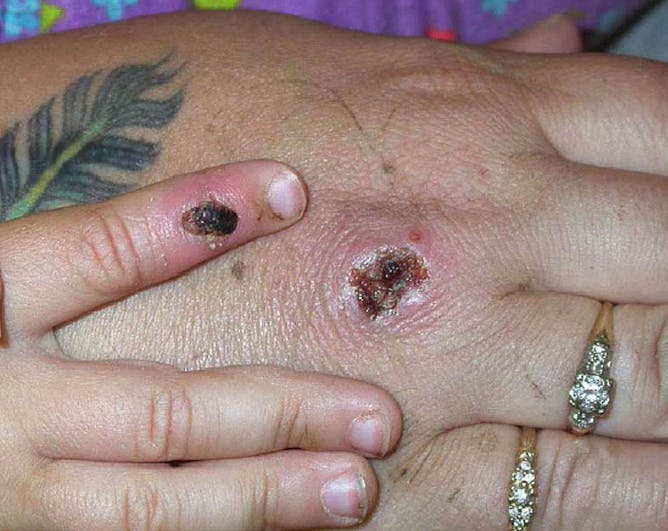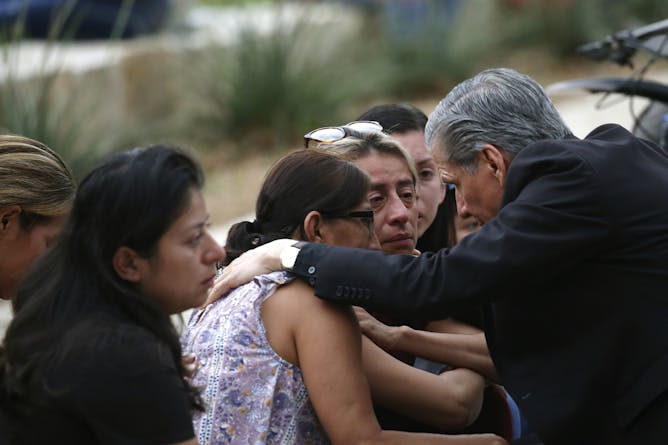|
Welcome to Sunday. The top 5 most-read stories of the week are displayed below. You can also read these stories in a magazine-style e-book.
Also listed below are five editors’ selections that we want to make sure you don’t miss.
It was a week of heartbreak in America as the second mass shooting in two weeks resulted in the death of 19 children and two teachers in Uvalde, Texas. A Slack channel we share with our colleagues around the world was lit up with horror and one basic question: Why doesn’t America stop these mass shootings – especially when more than half of Americans support stricter gun control?
An excellent article from Senior Politics + Society Editor Naomi Schalit took this and other pointed questions to political scientists Monika McDermott and David Jones. The professors explain why national polls like the one showing wide support for gun control legislation don’t dictate lawmakers’ agenda.
Next week, we’ll be looking into the police response in Uvalde and how the trauma of these events is affecting the health of American children.
If you have questions you want answered, hit reply and let us know.
|

An oil tank at Hungary’s Duna Refinery, which receives Russian crude oil through the Druzhba pipeline.
Attila Kisbenedek/AFP via Getty Images
Margarita Balmaceda, Seton Hall University
Former Soviet bloc nations have reason to worry about an embargo on Russian oil, but Europeans are finally recognizing the true costs of their longstanding energy dependence on Russia.
|

Yes, worry about Twitter, but don’t worry whether there are hordes of spambots running rampant there.
gremlin/E+ via Getty Images
Kai-Cheng Yang, Indiana University; Filippo Menczer, Indiana University
Elon Musk’s focus on the number of bots on Twitter, whether genuine or a distraction, does little to address the problems of misinformation and spam. A pair of social media experts explain why.
|
|
|
-
Robert Spitzer, State University of New York College at Cortland
The group, founded in 1871, didn’t try to smother virtually all gun control efforts until the mid-1970s.
-
Monika L. McDermott, Fordham University; David R. Jones, Baruch College, CUNY
The nature of elected office combines with the lasting priorities of public opinion to put gun control on the back burner, even in times when it does get massive public attention.
-
C. Michael White, University of Connecticut
Prescription opiods, stimulants such as those used to treat ADHD and the ingredients found in sexual dysfunction drugs like Viagra are some of the drugs that are being marketed to US consumers.
|
|

Monkeypox causes lesions that resemble pus-filled blisters, which eventually scab over.
CDC/Getty Images
Rodney E. Rohde, Texas State University
Monkeypox has been spreading in humans since as early as 1970. While most monkeypox infections are mild, some can be fatal.
|

The archbishop of San Antonio, Gustavo Garcia-Siller, comforts families following a deadly school shooting at a school in Uvalde, Texas, on May 24, 2022.
AP Photo/Dario Lopez-Mills
James Densley, Metropolitan State University ; Jillian Peterson, Hamline University
Of the 13 mass school shootings that have taken place in the US, the three most deadly occurred in the last decade. Data from these attacks helped criminologists build a profile of the gunmen.
|
|
|
-
Lowell Barrington, Marquette University
Studies on Ukraine going as far back as the late 1990s and early 2000s showed that the country’s population was connecting less and less with Russia.
-
James Edward Huchingson, Florida International University
A professor of religion and science explains different views on immortality, from the religious perspective of President Jimmy Carter to the scientific, secular take of Carl Sagan.
-
Daniella McCahey, Texas Tech University
Scientists just grew plants in soil from the Moon, but Antarctica has long provided researchers with the perfect place to test their agricultural techniques for a future in space.
|
|